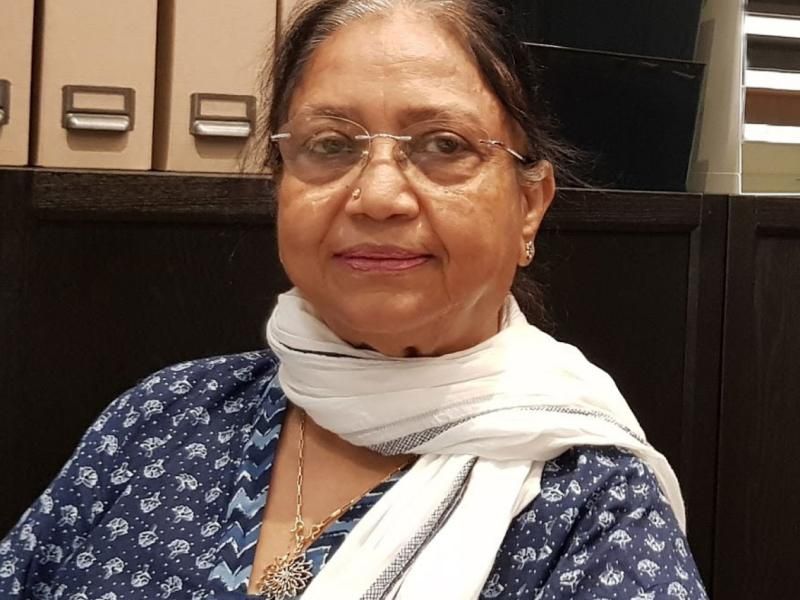Banu Mushtaq’s Heart Lamp Wins £ 50,000 International Booker Prize 2025
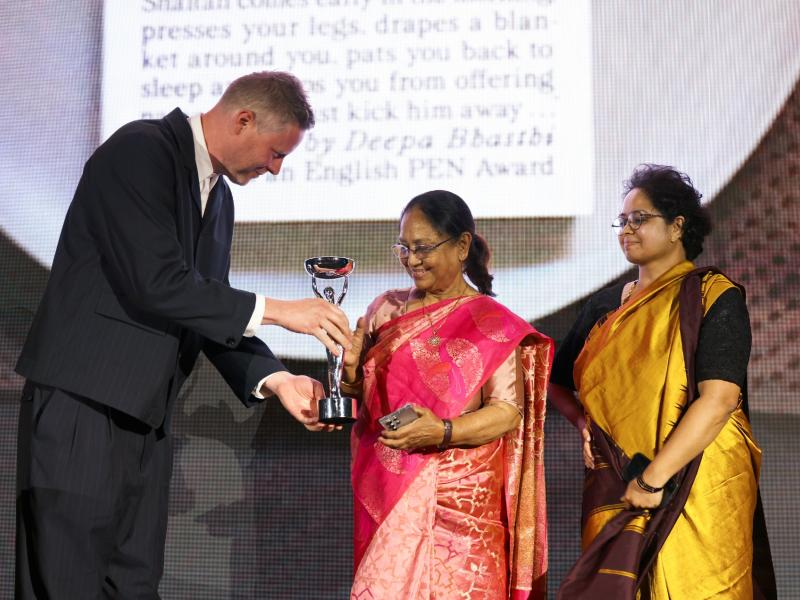
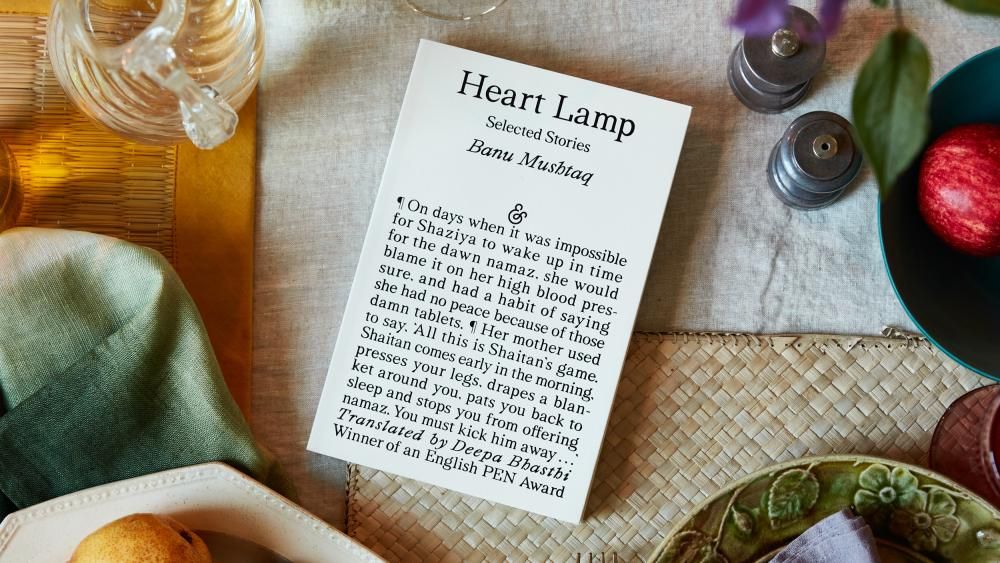
This collection of twelve short stories by Banu Mushtaq, translated from Kannada by Deepa Bhasthi, has won the International Booker Prize, at the Tate Modern, sharing the £ 50,000 prize between author and translator.
It’s a deceptively tiny book but packs a powerful punch. This stirring collection of 12 short stories take you into worlds which you didn’t know existed: you knew about their place on the map, their vague geographies but you didn’t know how invested you would get in the people in these stories. These are real people, and their dilemmas will draw you into their lives and you rejoice and grieve with them.
Each story is just about 10 to 12 pages but so deeply layered in its writing that each is like a mini novella and tells you so much about the characters with such an economy of words. A lot is said with the silences too, and your imagination becomes a sleuth too, musing and thinking, finding endings.
In the end there are no villains or devils in ‘Heart Lamp’, it is just a bunch of ordinary people trying to live their lives. Some may have their moral compass bent quite out of shape, but Mushtaq makes no judgement call, only tells the stories as they unfold.
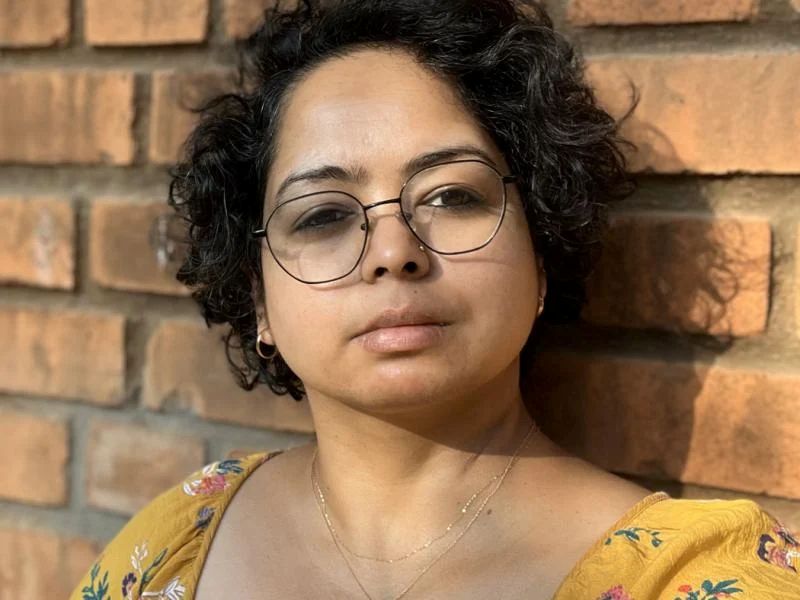
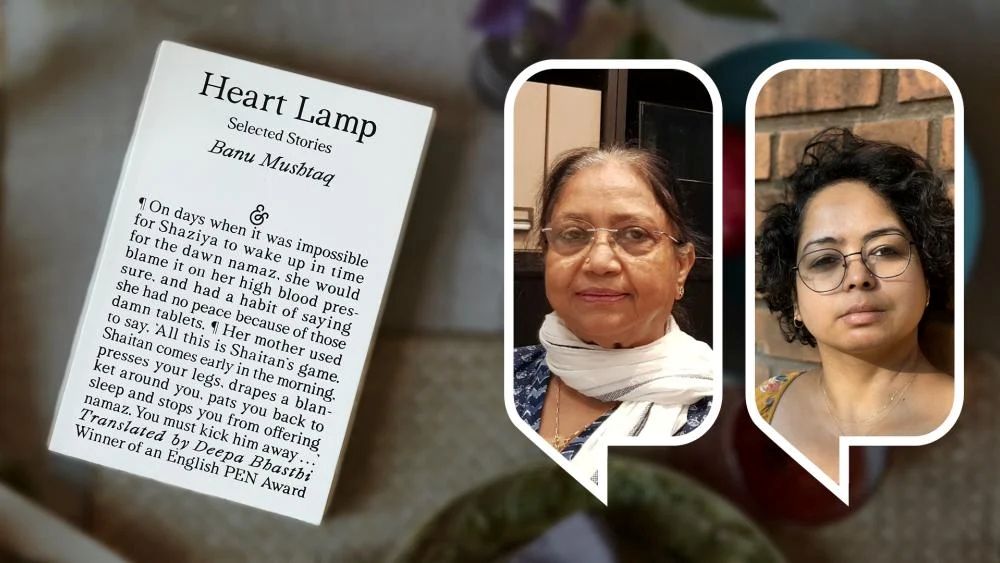
Banu Mushtaq is a writer, activist and lawyer in the state of Karnataka, southern India. She began writing within the progressive protest literary circles in southwestern India in the 1970s, and is the author of six short story collections, a novel, an essay collection and a poetry collection.
These stories were not written in English originally but in Kannada and it is the power of the translator Deepa Bhasthi who manages to convey the beauty and poignancy of the original. Many of the original Kannada words have been kept in the English translation and they give a sense of the original, the sweet taste of the language, conveying the earthiness and familiarity of the original. The rich sense of the language makes the reading more enjoyable. This is the first time a book in Kannada had ever been shortlisted for the Booker prize, and this happens to be the language of 40 million people in the home country and Diaspora.
Six Books had been shortlisted for the Booker Prize
Shortlisted titles receive £5,000, or £2,500 each for the author and translator; the winning work receives £50,000, or £25,000 each for author and translator.
The other five books shortlisted for the International Booker Prize are no less remarkable for they have been translated from five different languages. According to the Booker Prize site, none of the authors has been shortlisted for the International Booker Prize before, and three of them – Vincent Delecroix, Vincenzo Latronico and Banu Mushtaq – are nominated for the first of their books to be published in English. All six books are by published by independent publishers.
Bottom of Form
- On the Calculation of Volume (Book I) by Solvej Balle, translated from the Danish by Barbara J Haveland (New Directions)
- Small Boat by Vincent Delecroix, translated from the French by Helen Stevenson (Small Axes)
- Under the Eye of the Big Bird by Hiromi Kawakami, translated from the Japanese by Asa Yoneda (Soft Skull)
- Perfection by Vincenzo Latronico, translated from the Italian by Sophie Hughes (NYRB)
- Heart Lamp by Banu Mushtaq, translated from the Kannada by Deepa Bhasthi (And Other Stories)
- A Leopard-Skin Hat by Anne Serre, translated from the French by Mark Hutchinson (New Directions
Some facts from the Booker Prize site: The £50,000 prize “celebrates the best works of long-form fiction or collections of short stories translated into English and published in the UK and/or Ireland”. This year’s judges are Caleb Femi, Sana Goyal, Anton Hur, Beth Orton, and Max Porter.
Announcing Heart Lamp as winner, Chair of the 2025 judges Max Porter said the book ‘is something genuinely new for English readers: a radical translation’ of ‘beautiful, busy, life-affirming stories’.
‘Heart Lamp is something genuinely new for English readers. A radical translation which ruffles language, to create new textures in a plurality of Englishes. It challenges and expands our understanding of translation.
‘These beautiful, busy, life-affirming stories rise from Kannada, interspersed with the extraordinary socio-political richness of other languages and dialects. It speaks of women’s lives, reproductive rights, faith, caste, power and oppression.
‘This was the book the judges really loved, right from our first reading. It’s been a joy to listen to the evolving appreciation of these stories from the different perspectives of the jury. We are thrilled to share this timely and exciting winner of the International Booker Prize 2025 with readers around the world.’
https://thebookerprizes.com/the-international-booker-prize

